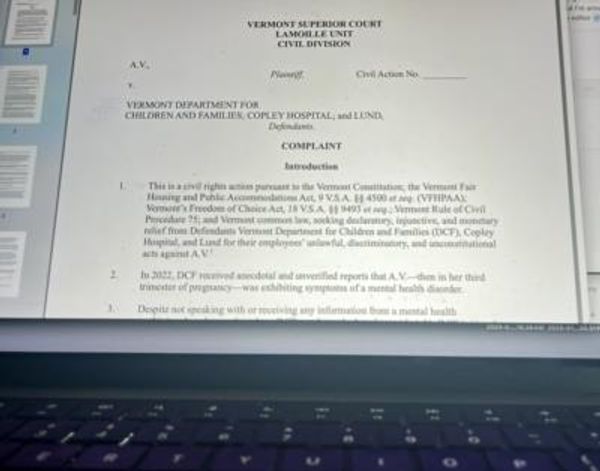
Anthony Albanese is getting very annoyed, as the government rages that neither the Greens nor the Coalition will bend to its will in the latest Senate housing standoff. At a press conference in Sydney today, the prime minister and housing minister trotted out the usual lines about Greens “hypocrisy” and “immaturity”, demanding the minor party pass their bills in the Senate immediately, with Albanese refusing to rule out a double dissolution if they don’t get their way.
Labor once again seems convinced it can blame the Greens for “blocking” its housing agenda, while giving away “nothing” in negotiations, according to the minor party, whose asks include “phasing out tax handouts for investors, rent caps, and mass investment in public housing.” But is Labor letting its hatred of the Greens, and specifically housing spokesperson Max Chandler-Mather, stand in the way of political good sense?
This is not an unfamiliar dance — in fact, it’s exasperatingly familiar to anyone who followed the Housing Australia Future Fund (HAFF) standoff (sub out former housing minister Julie Collins for replacement Clare O’Neil, though it’s clear Albanese plays a driving role). After several excruciating months, Labor gave a few inches, insisting it had nothing to do with Greens demands, at which point the minor party agreed to pass the bill.
Chandler-Mather has been pointing to this outcome, telling the ABC this morning that the Greens are “willing to negotiate”. “We recognise we won’t get everything in our negotiation, but right now they’ve offered nothing, literally no counter-offer,” he said — a claim that lines up with the government rhetoric, according to which the Greens should “do their jobs and vote this into law”.
Assuming Labor really is refusing to negotiate with the Greens, who hold 11 Senate seats to the government’s 25, it’s hard to argue that the minor party is the one holding up progress. Believing so ignores basic logic, not to mention the 70% of voters who didn’t give their first preference to Labor in the Senate. If the Greens were being uncooperative, refusing a reasonable offer (and that may come), the government would be right to be indignant. But the idea that it is crossbenchers’ “job” to pass this, sans negotiation, is “nonsense”, to parrot the PM’s own words back at him.
You have to wonder: what exactly is stopping Labor from coming to the table, as it does on other legislation, and giving some ground on rent caps, public housing, or tax breaks for investors? Australia is, as Labor was today eager to remind us, in a crisis, one that threatens to cost the government its majority at the next election — and one unlikely to be solved by tinkering around the edges.
The government may vehemently disagree with some of the policies Chandler-Mather is calling for, in particular rent caps. But it has good reason to act on others, such as public housing and negative gearing reform, which now appear to have majority support (not to mention that of the newly independent Fatima Payman, whose vote the government will likely also require). Labor is no doubt afraid of being seen to break a promise, after purging negative gearing from its 2019 platform. And yet January’s changes to the stage three tax cuts, another issue Labor refused to budge on for months, have become the party’s cost of living calling card — the main thing voters can name when asked what the government has done to improve their lives.
It seems obvious that a huge part of this standoff comes down to Labor’s visceral hatred for the Greens, and for Chandler-Mather, a former Labor member who, as last week’s Forget the Frontbench explored, drives the PM spare. Government ministers at times seem blinded by this fury, convinced that the Greens, who have become increasingly popular among renters, are only in it for votes. And yet it never seems to occur to them that one of the most effective ways to neutralise this threat would be to co-opt some of their policies, taking away their most potent lines.
“It’s called a democracy,” Albanese said today, when asked why Labor was putting its bills to the Senate, despite not having the votes. “We have legislation, we support it, there’s no-one putting forward a rational argument of why they shouldn’t vote for it.”
This is, indeed, a democracy. And the PM would do well to remember how those work, as voters increasingly look beyond the major parties to those offering real help to those struggling to get by.
Should Labor be willing to negotiate more with the Greens, or is the party right to stand firm? Let us know your thoughts by writing to letters@crikey.com.au. Please include your full name to be considered for publication. We reserve the right to edit for length and clarity.







